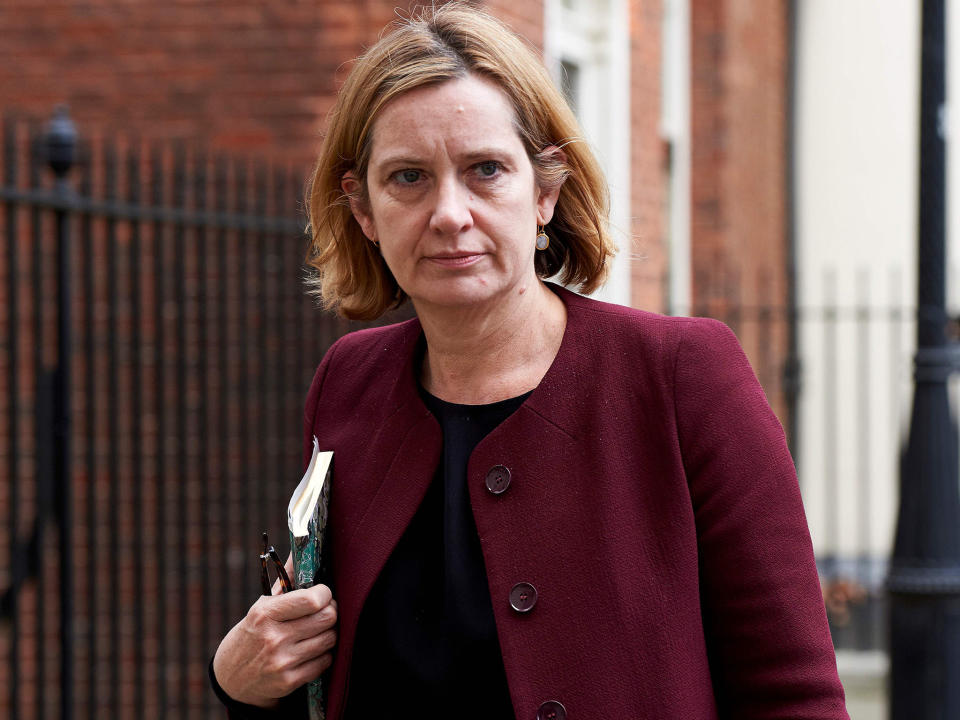Amber Rudd backs new immigration analysis designed to tackle ‘myths’, in challenge to Theresa May’s approach

Amber Rudd has backed a call for an annual report designed to tackle “myths and inaccuracies” about immigration, in an apparent challenge to Theresa May’s approach.
The regular analysis – to be based on advice by independent experts – “could have benefits in terms of improving understanding of the facts around immigration policy and practice”, the home secretary has said.
The move will be seen as an admission that the Home Office has been unable to convince the public that it has a coherent and smooth-working immigration policy.
It could also, once ministers listen closely to independent views, kill off the prime minister’s pledge to reduce met migration to the “tens of thousands”, which has been widely ridiculed.
Ms Rudd’s support – in principle – was revealed in her response to a report by the home affairs committee, calling on the government to be “more proactive in challenging myths and inaccuracies”.
It comes as she is embroiled in a Cabinet row over the stalling of a bill to decide the post-Brexit immigration system, with some ministers pressing for faster action on new restrictions.
Meanwhile, Ms May has insisted the “tens of thousands” policy remains in place, although Ms Rudd has refused to endorse that.
The support was welcomed by Yvette Cooper, the committee’s Labour chairwoman, who said: “If the government is prepared to look at our proposal for an annual migration report, that would be a helpful way to increase public consultation and debate, to challenge misinformation and to build consensus.
“It would also be a chance to overhaul the entire immigration system and deal with the serious errors and failings we have been warning about, and which we’ve seen hit the Windrush children in such a cruel way.
“It would require the government to pull together action on integration, training, public services and exploitation as well as immigration.”
The report, recommended by the committee in January, was designed to produce “more factual information about the costs and benefits of immigration at local and national levels”.
It would be informed by independent advice from the Migration Advisory Committee, in the same way as the Office for Budget Responsibility acts as a watchdog over the Budget figures.
Calling for an end to the prime minister’s migration target, the committee said: “It should cover targets or controls for different kinds of migration, an assessment of migration levels and consideration of policy requirements for different regions and nations.”
There should be “parallel plans to deal with skills shortages which are increasing demand for overseas workers or measures to deal with exploitation of low skilled migration”.
“The government should be frank and open in recognising that policy-making involves compromise, and that balancing competing interests means that no one can get everything they want,” the committee wrote.
In its response, the Home Office said an annual report could only follow the implementation of new immigration rules after Brexit.
But it acknowledged: “The government agrees that an annual migration report could have benefits in terms of improving understanding of the facts around immigration policy and practice.”

 Yahoo News
Yahoo News 